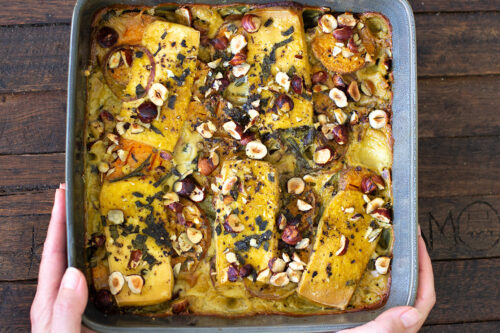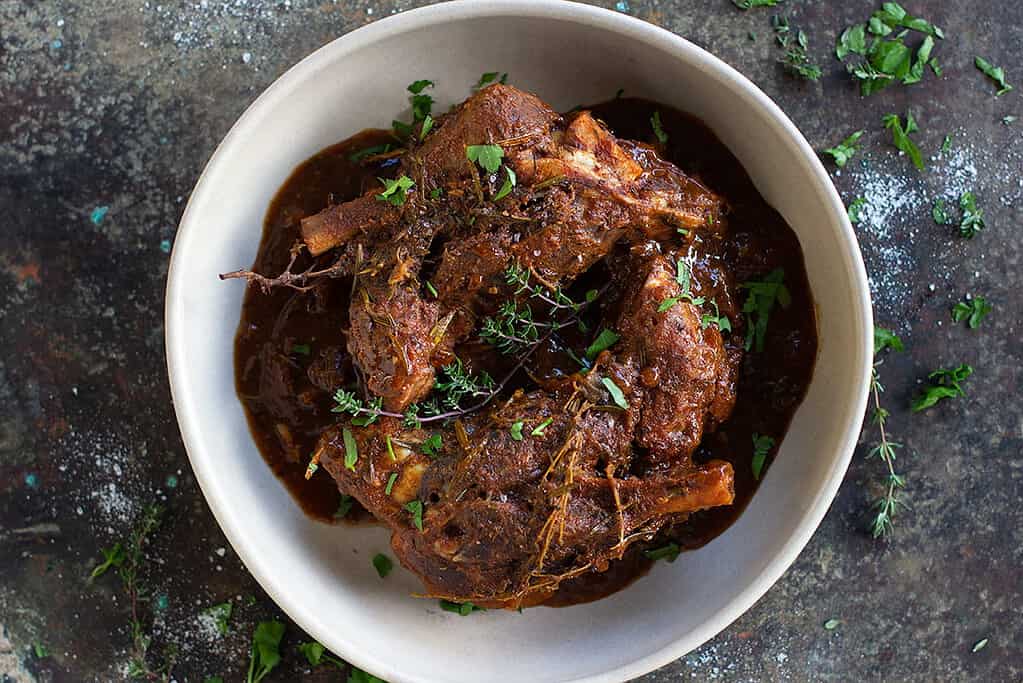
Slow Cooked Lamb Shanks. What is there to not love? Every year when it turns cold I am inundated with requests from clients at The JCN Clinic for recipe ideas for their food plans and treatment protocols that can be made in slow cookers. Recipes that bubble away all day that you come home to allowing you to spoon steaming hot dinner effortlessly into a bowl to devour. Lamb shanks themselves would have to be one of the most popular slow cooked meat options for slow cooker recipes. Affordable, delicious and wildly diverse, they offer a lot to winter cooking.
This recipe of Slow Cooked Lamb Shanks was created with the intension of providing a very simplistic slow cooker meal with minimal ingredients that still packed a punch of flavour. There are a lot of slow cooked lamb shank recipes around, but I do find that the ones with minimal ingredients can often be lacking in flavour. I do understand that not everyone wants to spend the time fussing with a long list of ingredients so my goal here is to use smart flavourful ingredients that deliver a lot.
Now, as I have said numerous times with recipes like this, when you dial back ingredients there is not as much room to hide. Pairing recipes back exposes the ingredients for what they are, so it is integral to use quality ingredients if you want the best results. If you use a crappy flavourless stock base then don’t expect that rounded body flavour that robust flavoursome stock provides. If you use watery, tasteless passata then don’t expect the sweetness of cooked tomatoes to shine through. My recommendations here are to ideally have your own stocks frozen for easy use or invest in a good stock brand and/or stock (bone broth) base.
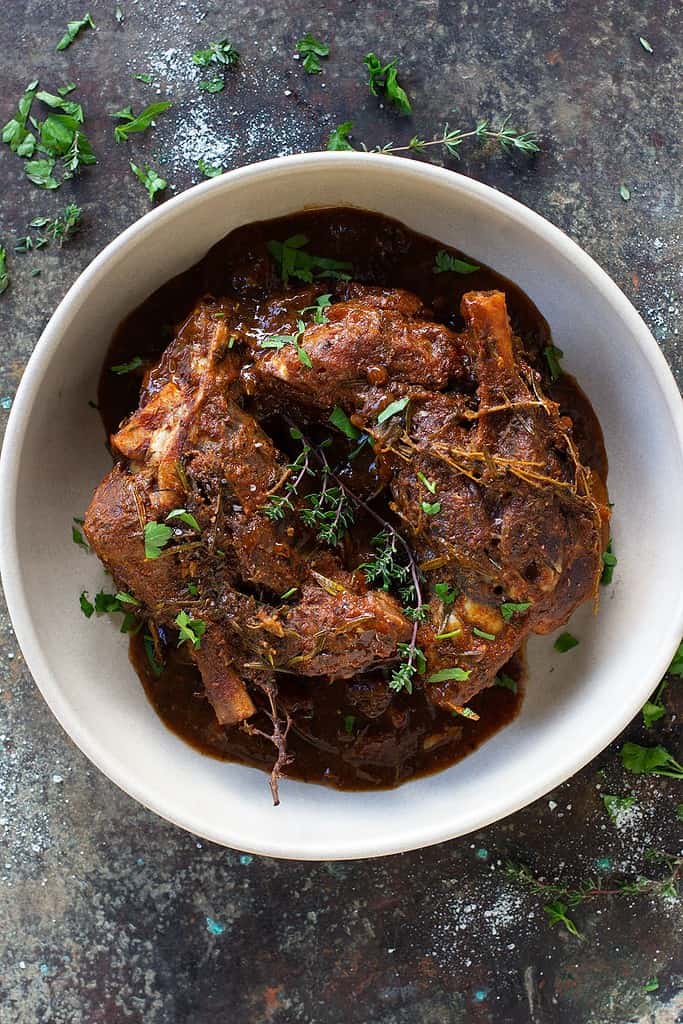
How to make lamb shanks ‘healthy’?
I think the misconception here is that lamb shanks are ‘unhealthy’. Lamb shanks are a wonderful nutritional source of protein, iron and B12. Yes, they are a fattier meat but when consumed as part of a well rounded whole-food diet that fat is gold in itself. We need a variety of fats for our hormones and woman in particular (especially Gen X and Boomers) tend to get a bit stressed out about fat. Additionally, the central bone of the shank if filled with marrow that melts into the lamb shank sauce. Marrow is a rich source of collagen providing building blocks for our joints, ligaments and skin.
The most common nutritional ‘pitfall’ I’d see with these types of slow cooked meals is more the portion that gets served up alongside the portion of the accompaniment. Generally shanks and slow cooked meats are served with a complex carbohydrate like mashed potato or other mashed root veg, or creamy polenta or rice. Again, there is nothing wrong at all with this complex carbs on your plate. The pitfall is the portions! Now every once in a while we all overeat a meal (Western world privilege) and its not the be-all and end-all. However, if its common behaviour then meals like this can be be contributors to over exaggerated portions. The lamb shank comes all packaged as one, so when it goes onto your plate your brain is like “oh look at this shank all for me!”. A shank also asks for a nice bed of mash/polenta/rice etc to sit on, so again, the serving size can get a bit over inflated.
To navigate this I often ask my clients to do two things:
- One, when dishing up, think about the portion that you usually feel comfortable eating as far as your complex carbs and protein and serve this up – that might look disproportionate on your plate with the size of the shank next to the mash, but its ok!
- Two, you don’t actually have to eat that entire shank. I know it might come as a shock but its not written in blood that that shank needs to be devoured in one sitting. And guess what? Its not going anywhere if you leave some on your plate. In fact, it will taste even better tomorrow!
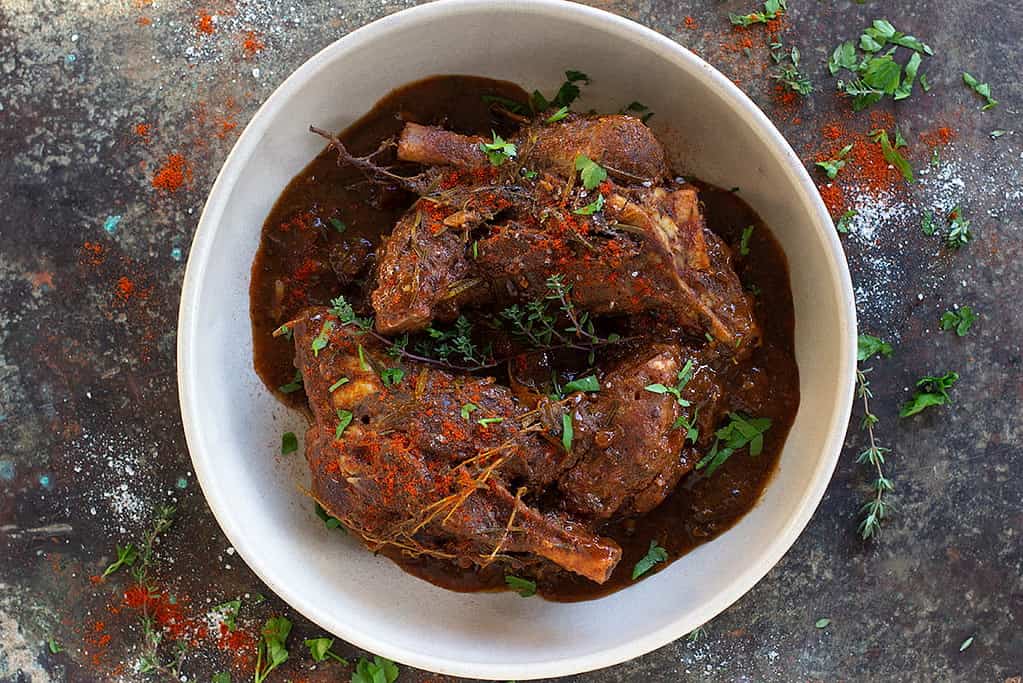
Over eating is actually super common. We see over eating as an ingrained habit in many clients at The JCN Clinic. It is usually driven by either a lack of balanced whole food meals through the day leading to getting overly hungry in the evening and/or emotional triggers like ‘reward eating’ for making it through the day, getting the kids in bed and finally feeling like you have the day to yourself. Honestly, it can be an intermingled combination of both of these points too.
I think over eating is an important topic to talk about and not one that should be about shaming. I also think that it’s not about being controlling or not being intuitive with your food. In fact it is actually more so about being intuitive with your body and taking note of how hungry you really are and if the response to the meal on your plate is being driven by actual hunger or emotions.
Over eating like I said occasionally is fine. However the consistent habitual daily nature of it for many puts a huge burden on the digestive system and often leaves people feeling sluggish and lethargic in the morning. Sleep is often disrupted due to the physical discomfort of being over full.
Conversely, when someone has a habit of consistent overeating and then starts to break this down and create new habits that enable them to consume meals till they are content instead of over full, they are often amazed at how much better they feel all round. Better sleep, better energy, greater digestion. It has a fabulous knock on effect.
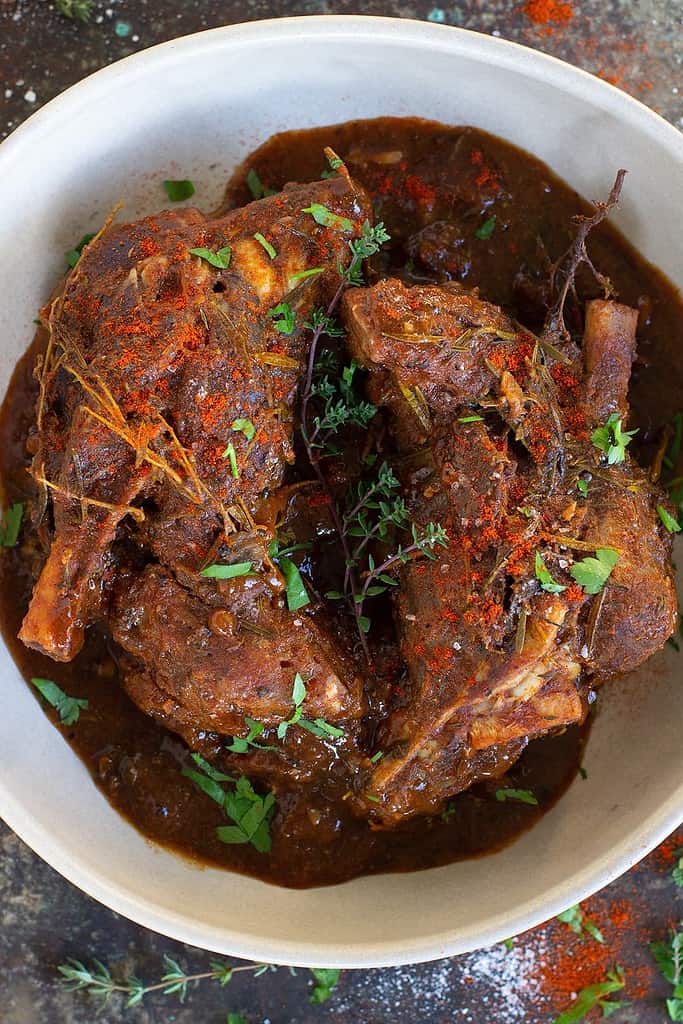
What defines over eating?
We all eat different sized meals and have different daily requirements. My requirements are different to your requirements. This is where getting to know your body and paying attention to those signals you get when you are eating telling you that you have had enough becomes important. For some who have overeaten for so long, the concept of feeling content from a meal is linked to that of the overly full feeling. So pairing the meal back and not feeling that overly full feeling can be actually really hard and confronting. Your brain will tell you “but I am still hungry!” when in fact you are not hungry, you are just not busting full.
Like what you’re seeing? Subscribe for new recipes and nutrition tips every week!
Working through these hunger signals can be something that a JCN Clinical Nutritionist can help you with and of course help you identify triggers throughout your day and/or food choices earlier on it your day that enhance over eating in the evenings. However, if you feel that your overeating is strongly connected to emotions (or we identify this with you) we would then start to look for further support regarding counselling or even sessions with Paige Redford who specialises in Intuitive Eating at At The JCN Clinic.
There is so much emotion involved with food. It’s the reason we have tissue boxes on our desk in the clinic. We may not be aware of it until we sit down and talk to a professional who asks these questions allowing you to draw lines between the dots for the first time. The beauty is, once those lines are drawn you can then start to make positive action plans to break habits that may not be contributing the best outcome to your health (both mentally and physically). To me, this ‘habit changing’ is where the true growth happens!
Need personalised nutrition advice catered to your needs?
If you are after personalised nutrition advice and dietary planning individualised to your health and dietary needs then contact us at The JCN Clinic with your enquiry. We are always happy to answer any questions you have!
slow cooked lamb shanks
- serves
- 2
- preparation time
- 15 min
- cooking time
- 8 – 10 hours
ingredients
- 2 lamb shanks
- 1 cup (250ml) passata
- 1 cup (250ml) chicken stock
- 4 tablespoons apple cider vinegar
- 1.5 teaspoon salt
- 1.5 teaspoon ground pepper
- 2 anchovies
- 4 bay leaves
- 4 sprigs rosemary, stems and all
- 1 handful (6g) fresh oregano, stems and all
- 1 handful (6g) fresh thyme, stems and all
- 3 cloves garlic, crushed
- 1 tablespoon smoked paprika
method
This recipe is designed for minimal fuss using a slow cooker. You could also do this in the oven but reduce cooking time to 3 – 4 hours. This recipe also makes lots of delicious sauce, so you could add another lamb shank or 2 (if they are on the smaller size) in if you like, but make sure you give everything a good stir a few times during cooking for even heat distribution.
Omit garlic for low FODMAP option and add 2 tsp garlic oil in its place.
Place slow cooker on low setting. Now add all ingredients in a large slow cooker except for the lamb shanks and mix well.
Add the lamb shanks and press down into the wet ingredients. They will not be completely submerged but that is fine. Place the lid on the slow cooker and leave for at least 8 – 10 hours. Alternatively, prepare in the evening and leave overnight, then place the slow cooker basin in the fridge in the morning after cooling for dinner later that day (will just requires some easy re-heating).
The lamb shanks are done when the meat is falling off the bone. Pull out any obvious bay leaves and herb stems, but if they get served up its not the end of the world! Serve with mash of choice or Creamy Polenta and some steamed greens or a nice bug bunch of rocket. Also amazing with a side of Candy Brussel Sprouts.
nutritional information for slow cooked lamb shanks
- This slow cooked lamb shank recipe is an abundant source of protein. For context, 100 grams of lamb containing around 25grams of pure protein, similar to a big scoop of your favourite protein powder. Lamb also provides a combined mix of saturated and a mono-unsaturated fat, so contrary to belief fat from lamb is not all the saturated kind. Lamb is also very rich in B vitamins, B2, B3 and B6 and a magnificent source of B12 (red meat is generally the most abundant source of B12). Lamb is also high in minerals such as selenium, iron, zinc, potassium and phosphorus.
Jessica Cox is a qualified practicing Nutritionist with a Bachelor Health Science (Nutrition) and over 15 years of clinical experience. She is the founder and director JCN Clinic, published author and established recipe developer. Jessica is well respected within health and wellness space for her no fad approach and use of evidence-based nutrition.





